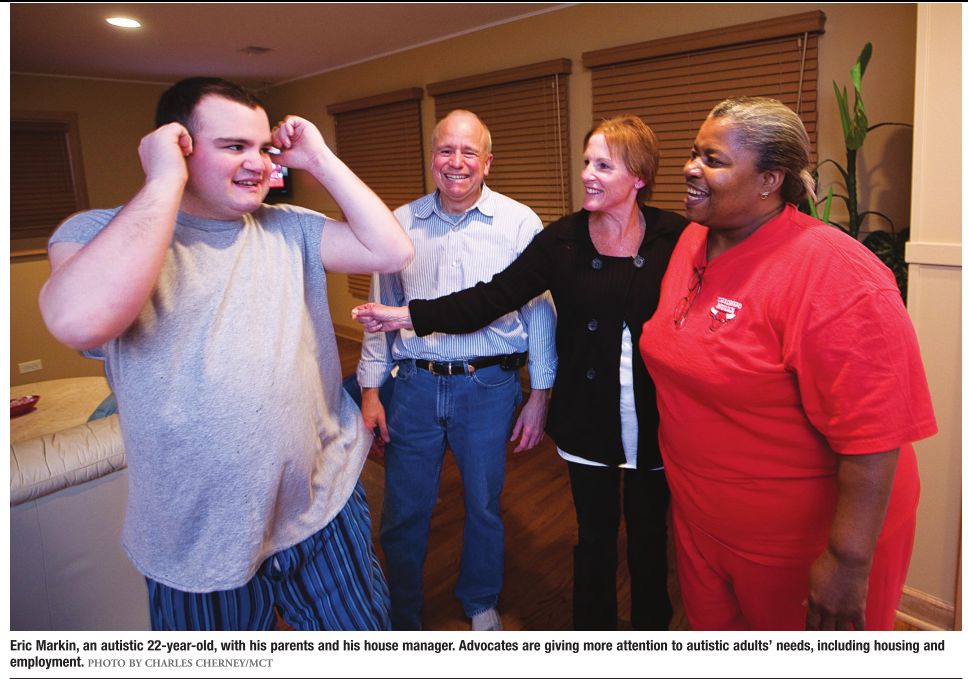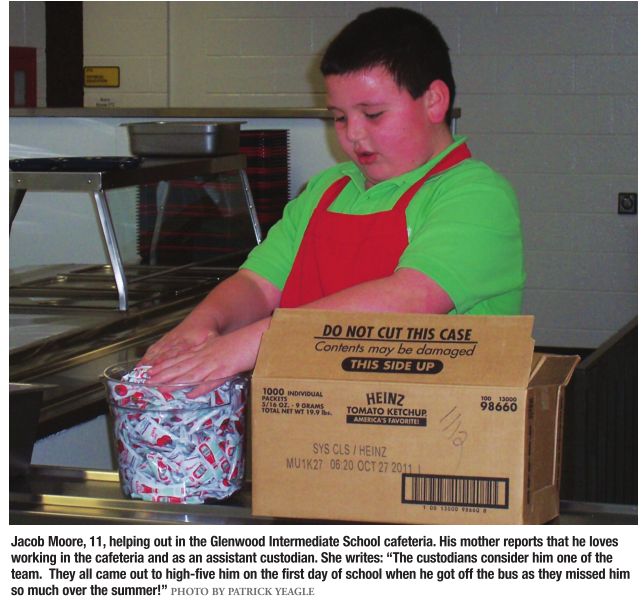
State and local resources According to the Centers for Diseases Control (CDC), in 2000, approximately 1,000 Illinois residents between the ages of 3 and 22 were diagnosed with autism. By 2008, the number had increased to more than 13,000. Today it’s estimated that more than 20,000 Illinois residents have been diagnosed with ASD.
In response to the increase of diagnosis, in 2003, Springfield’s Hope Institute for Children and Families led the development of The Autism Program, which also has regional centers in Chicago and Carbondale and affiliate centers in various locations across the state.
In 2004, Governor Rod Blagojevich signed a law creating the Illinois Autism Task Force, consisting of educators, medical professionals, and parents of children with the disorder. Its goal is to assess and address the needs of individuals with ASD. Since its formation, Illinois has passed a number of laws aimed at meeting the needs of those living with the disorder.
Insurance companies are now required to cover diagnosis and treatments of ASD. Though the state cannot afford to assist everyone in need, other laws provide homebased support services for children and adults with ASD and 24-hour residential support services in licensed group homes.
Illinois has also created the Illinois Autism Clearinghouse, which offers articles and resources for parents, teachers, and others interested in ASD.
Currently, many autism advocates are turning their attention to adults with autism. Children with autism and other disabilities are allowed to remain in school until the day before their 22nd birthday. But once they “age out” of school, many parents are left wondering what happens to their children, as there is little support available, says Julie Alderman of The Autism Program, adding that those with Asperger’s and other forms of high-functioning autism are most affected.
“This is a very fearful time for parents because often we don’t know what the next step is for our children,” said Moore. “Some have parents who work full time, yet the disorder is so severe that the child cannot stay home alone. There are cases where a parent has to quit a job in order to stay home to care for their child.”

Employment is a huge need,” Alderman continued. “These individuals can be productive in the work environment. Many of them have valuable skills and can be assets to various industries.” The issue,” explains Alderman, “is convincing employers that many with autism can make good employees. There is a learning curve. And they need to be allowed to make mistakes as they learn the job.” Alderman: “Earning their own money will increase their self-esteem.”
 Another challenge for adults with autism involves housing. Many individuals with autism can live on their own with a little structure and support. This is especially important when you consider that parents won’t always physically be around to provide for their children. “I don’t won’t my younger son to feel as though he is responsible for his older brother once me and my husband are gone,” says Moore. “We want to know that our son will be okay.”
Another challenge for adults with autism involves housing. Many individuals with autism can live on their own with a little structure and support. This is especially important when you consider that parents won’t always physically be around to provide for their children. “I don’t won’t my younger son to feel as though he is responsible for his older brother once me and my husband are gone,” says Moore. “We want to know that our son will be okay.”
Three years ago, Moore’s employer, Lutheran Social Services, began plans to build a duplex to house eight high-functioning autistic adults. The
home, modeled after the Richmond House in Richmond, Va., will cost $500,000 to $600,000, Moore said. The agency is currently seeking property in a residential neighborhood on which to build the home. Though the agency has raised enough funds to buy the property, officials are hoping that donors will contribute funds and in-kind services that will lower the project’s final cost.
Residents living in the home, which will include a staff person to provide assistance, will have to pay rent. The home will also have in-house life skills programs, which will include topics such as gaining employment, understanding a budget and managing money. Lutheran Social Services hopes to open the house within the year.
Recognizing the lack of support for adults with ASD, in September, two local counselors, Catherine Wells and Debi Edmund-Ellersten, began a monthly support group. To date, approximately a dozen adults, ages late teen to early 50s, have attended the meetings. Edmund-Ellersten says that discussions have included dealing with work challenges and the benefit of job coaching services, appropriate accommodations at work and school, myths and stereotypes that led to stigma and discrimination, and accessible community services.
“In a perfect world, everyone with autism would be diagnosed at an early age and begin treatment as soon as possible,” says Alderman. “And, not only would we be able to meet the needs of each individual with autism, we’d also provide counseling and therapy to empower and meet the needs of the entire family. “ In the meantime, Alderman and Moore both believe that the community can help make life easier for those with ASD by becoming more educated on the disorder and by being less judgmental towards those with the disorder. “I want people to recognize that when they see children having meltdowns in public, it doesn’t mean that he or she is a horrible child,” Moore says. “And, instead of glaring at us, asking if there is anything you can do to help would really go a long way in making us feel more comfortable in public.”
Contact Jolonda Young at [email protected].
To learn more about autism, contact TAP at 525-8332 or view their website www.theautismprogram.org.
For more information about the new adult support group, contact Edmund at 793-2587 or [email protected].